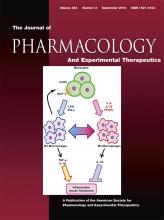Abstract
The phenotype pantoprazole-13C breath test (Ptz-BT) was used to evaluate the extent of phenoconversion of CYP2C19 enzyme activity caused by commonly prescribed proton pump inhibitors (PPI) omeprazole and esomprazole. The Ptz-BT was administered to 26 healthy volunteers and 8 stable cardiovascular patients twice at baseline and after 28 days of PPI therapy to evaluate reproducibility of the Ptz-BT and changes in CYP2C19 enzyme activity (phenoconversion) after PPI therapy. The average intrapatient interday variability in CYP2C19 phenotype (n = 31) determined by Ptz-BT was considerably low (coefficient of variation, 17%). Phenotype conversion resulted in 25 of 26 (96%) nonpoor metabolizer (non-PM) volunteers/patients as measured by the Ptz-BT at baseline and after PPI therapy. The incidence of PM status by phenotype following administration of omeprazole/esomeprazole (known inhibitors of CYP2C19) was 10-fold higher than those who are genetically PMs in the general population, which could have critical clinical implications for personalizing medications primarily metabolized by CYP2C19, such as clopidogrel, PPI, cyclophosphamide, thalidomide, citalopram, clonazepam, diazepam, phenytoin, etc. The Ptz-BT can rapidly (30 minutes) evaluate CYP2C19 phenotype and, more importantly, can identify patients with phenoconversion in CYP2C19 enzyme activity caused by nongenetic factors such as concomitant drugs.
Footnotes
- Received May 5, 2015.
- Accepted July 8, 2015.
This work was supported by the Austrian Agency for International Cooperation in Education and Research [OeAD-GmbH, project SPA 05/202 - FEM_BREATH].
A.M. is an employee at Cambridge Isotope Laboratories, which manufactures the 13C-labeled pantoprazole used in this study. Commercialization of the pantoprazole breath test could be financially beneficial to the company. The remaining authors declare no conflicts of interest.
Dr. Anton Amann is deceased.
↵
 This article has supplemental material available at jpet.aspetjournals.org.
This article has supplemental material available at jpet.aspetjournals.org.
- Copyright © 2015 by The American Society for Pharmacology and Experimental Therapeutics
JPET articles become freely available 12 months after publication, and remain freely available for 5 years.Non-open access articles that fall outside this five year window are available only to institutional subscribers and current ASPET members, or through the article purchase feature at the bottom of the page.
|







